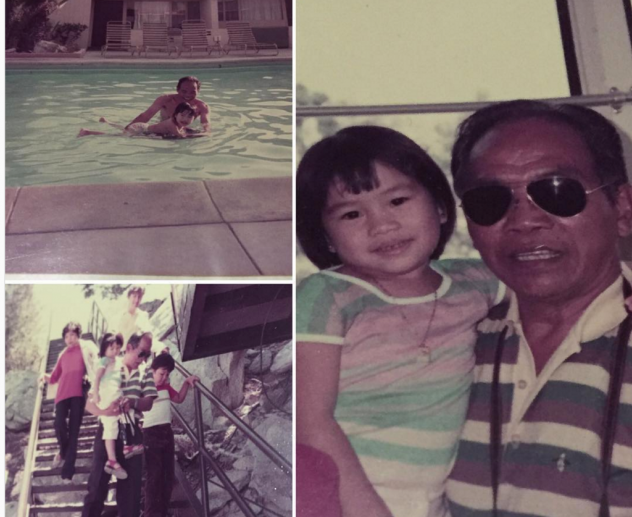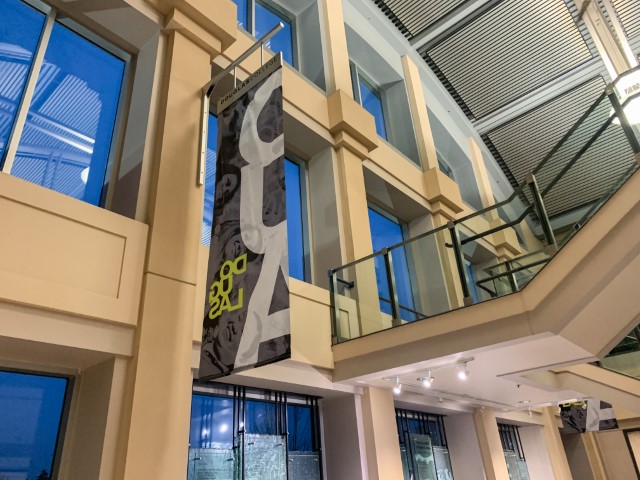
Sexual abuse survivor shares her perspective of the Women’s March
By Aaron Guillen, Staff Reporter
Jodie Ortega, a New Westminster resident, has never been one to shy away from expressing her opinions and living an authentic lifestyle. She proclaims herself an ‘ARTivist,’ using her passion for hip hop and spoken word to spread her message of empowerment among all genders, races, and religions.
Ortega is a survivor of domestic violence and childhood sexual abuse. From the age of four until she was 14, Ortega was sexually abused by her paternal grandfather. Though her paternal grandmother was aware of the situation taking place, “she did nothing […] thus feeding his sick compulsion,” shared Ortega in a BIL talk (similar to TED Talks, but rather an unaffiliated unconference) in Vancouver.
As Ortega grew up in an Asian home, she points out how her family discouraged dealing with sensitive issues, especially surrounding boundaries and consent. Since breaking her silence in 2012, she shares her empowering story at local speaking events and abroad.
In January, the Women’s March on Washington (WMW) took place, with sister marches worldwide and on every continent. In Vancouver, an estimated 15,000 participated while only 8,000 were expected. Social media feeds exploded as all genders from many walks of life gathered to show their solidarity for women’s rights. For many attendees, this was their first introduction in actively participating in a social movement.
“When I took a much-needed break from social media in December, I observed not only a lot of unhealthy dialogue online, I saw that although people are aware of societal issues, they were disconnected from taking action,” said Ortega in an interview with the Other Press.
“I realized that I was not interested in any kind of ‘keyboard activism.’ I wanted to scale back on engaging on social media, and take more action. The Women’s March was a start. Being involved in the march was therapeutic, especially after a long and emotional US election. I felt less alone when women connected with me after my presentation, saying that they were survivors too.”
Ortega spoke at the march and shared two pieces of her own poetry—one on feminism and the other about her experience with sexual abuse.
“Like many survivors of sexual violence, I was very triggered throughout the US election cycle,” said Ortega. “For many people, Trump reminded them of their own perpetrators or even people in their own lives. Can you imagine being sexually harassed and assaulted and now your perpetrator becomes president of your country?”
Among chants that echoed throughout the massive crowds as they marched through the downtown core, many people paraded clever signs, including unforgettable ones like: “The Fempire Strikes Back,” “We Are Not Ovary Acting,” and “My Beaver, My Rules.”
“It’s always a surreal feeling, what I experience when I get in front of a crowd—so many little things I see that others probably don’t,” shared Ortega. “When I was rapping my piece on sexual abuse, I saw a man put his arm around his female companion who was starting to tear up. There was a woman that started to hug her female companion and also approached me afterwards and gave me such a warm hug.” These moments are the reasons that Ortega strives to memorize her presentations—in order to make those special connections. By meeting several survivors at the march, she was proud to have planted the seeds of hope for anyone within earshot of her talk.
“Before I went into my piece on sexual abuse, I said something like: ‘This is for the person in the crowd that is a survivor of sexual abuse and hasn’t told anyone. I want you to know I thought of you when I woke up this morning, I want you to know that I believe you and that you are not alone,’” shared Ortega.
“I had an amazing time presenting onstage, but I am no stranger to online bullying. For example, when my TEDx talk was released on YouTube, I received hate mail every day for a couple of months, but I had no idea how much criticism […] and online harassment I would receive once I got off the stage at Saturday’s march.”
According to Ortega, one of her interactions went awry when she engaged in conversation with a woman who praised her presentation at first, but quickly suggested that Ortega get monolid surgery to make her “better at public speaking.’” Though she was offset by the snide remark, she believes that the positive effects of her talks always outweigh the negative and that she would go through the same experience in a heartbeat if it meant that she was able to meet so many survivors.
Looking to the future, Ortega hopes that society will see the imminent need for social justice and rise to the challenge, in more ways than one.
“Start getting comfortable having these uncomfortable conversations,” said Ortega. “We can only grow through struggle. Do what you can to be an ally. Small actions over time make a big difference. Step away from the keyboard and, as Gloria Steinem said in her keynote speech in Washington, ‘put our bodies where our beliefs are. Sometimes pressing send is not enough.’”


